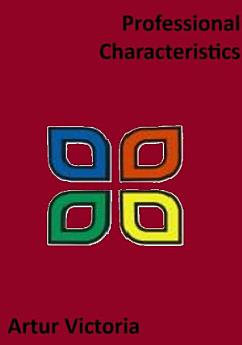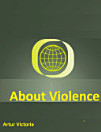Characteristics of a Profession
About this ebook
A key characteristic is the possession and application of specialised knowledge. This knowledge is not just technical skills, but a deep understanding of principles, theories and methodologies that requires extensive education and training. This expertise is the basis of professional authority and legitimacy. It enables professionals to make informed judgements and decisions that others who lack this expertise cannot. This expertise isn't simply acquired through rote learning; it's refined through experience and continuing professional development, further enhancing the professional's authority and credibility.
Another characteristic is autonomy. Professions have considerable control over their own work processes. This includes setting standards of practice, regulating entry to the profession and maintaining disciplinary mechanisms for members who breach these standards. This self-regulation is crucial in ensuring the quality of professional work and the protection of the public interest. The medical profession, for example, sets rigorous standards for medical education and licensing to ensure that only qualified individuals can practice medicine. Similarly, the legal professions maintain strict codes of conduct and disciplinary procedures to deal with instances of professional misconduct, thus maintaining the integrity of the legal system. However, this autonomy is not absolute; it's a negotiated balance, constantly refined by societal expectations and legal frameworks. The degree of autonomy varies from profession to profession and is often challenged by external forces such as government regulation or technological advances.
The concept of self-regulation is inextricably linked to the ethical responsibilities inherent in professional practice. Professions are expected to adhere to strict ethical codes that place the welfare of their clients or patients above personal gain. These ethical codes are more than a set of rules; they represent a commitment to uphold the trust that society places in professionals. Breaches of this trust can have devastating consequences, eroding public confidence and undermining the legitimacy of the profession. Medical malpractice, legal malpractice and engineering failures all illustrate the potentially disastrous consequences of professionals failing to meet their ethical obligations.
The ethical dimension reinforces the social contract between professionals and the public - a reciprocal agreement whereby professionals receive privileged status in exchange for service to the public good. Distinguishing professions from mere occupations highlights the essential distinction between expertise and specialised knowledge. While occupations involve specific skills and training, professions involve a higher degree of autonomy, self-regulation and ethical responsibility. The distinction isn't always clear-cut, and some professions aspire to professional status, a process known as professionalization. This process typically involves a formalised educational structure, the establishment of professional associations, the development of professional codes of conduct, and efforts to gain legal recognition and regulatory authority. The evolution of nursing from a largely informal occupation to a highly regulated profession over the last century illustrates this dynamic.
The historical development of professions provides a rich background for understanding their current characteristics. The medical profession, for example, underwent a long process of professionalization, moving from a largely unregulated practice to a highly specialised and regulated field. This process involved the development of medical schools, the establishment of licensing boards and the creation of professional associations. The legal profession followed a similar trajectory, with the establishment of law schools, bar associations and rigorous licensing requirements. However, the trajectories of different professions were different, influenced by social, economic and political forces. The interplay of these forces highlights the social construction of professions - their characteristics and boundaries are not inherent, but rather shaped by social processes and power dynamics.
The digital age has brought significant changes to the scenery of professions. Technological advances have affected the nature of professional work, blurring traditional limitations and creating new opportunities and challenges. Telemedicine, online legal services and remote engineering consultations have changed the way professionals interact with their clients and colleagues. This digital transformation also requires the adaptation of ethical frameworks and regulatory mechanisms to address unique challenges such as data privacy, cyber security, and the potential for bias in algorithmic decision-making. The evolving nature of professional work in the digital age requires continuous reassessment of professional standards to ensure they remain relevant and effective in a rapidly changing world. This ongoing adaptation demonstrates the dynamic nature of professions, a constant negotiation between established norms and emerging realities. Exploring these changes is essential to understanding the future of professions and their role in society. The rapid pace of change requires an ongoing dialogue between professionals, policy makers and the public to ensure that professional practice remains aligned with societal values and expectations. The ongoing challenge is to promote a balance between innovation and ethical considerations, and to maintain the integrity and public trust that underpin the professional enterprise.
Professional power is not simply the ability to perform a specific task; it's a multifaceted phenomenon woven into the fabric of social control. It derives from the specialised knowledge and skills that professionals possess, giving them authority and influence far beyond the technical aspects of their work. This power manifests itself in a variety of ways, shaping social norms, influencing policy decisions and even affecting the distribution of resources and opportunities. The ability to diagnose disease, represent clients in court, or design safe infrastructure all carry an inherent power that stems from societal dependence on these specialised skills. However, this dependence requires careful consideration of the potential for misuse and abuse of this power.
About the author
2 145 / 5 000
Resultados da tradução
Resultado de tradução
Artur Victoria is a Researcher at OBSERVARE – Observatory of Foreign Relations of the Autonomous University of Lisbon (UAL) and a lecturer for non-governmental organizations.
He has a degree in Law from the University of Lisbon. He holds the National Defense Course. He holds certificates such as: Trainer of Trainers (Ordem dos Advogados), Refresher Course from the National Defense Institute, Corruption Control (Open Society Hungary).
He was Founder of the Colégio Luso Internacional in Portugal, Representative in Europe of the Federation of Portuguese Culture, Founder and President of the Luso-Brazilian Legal Institute, Representative in Europe of the Association of Graduates of the Escola de Diplomados Superior de Guerra – Brazil, Society of Friends of the Brazilian Navy, among others.
He practiced law for 21 years, was an Elected Member of the Sectional Council of the Portuguese Bar Association and an Intern Supervisor at the OA.
Author of five Law books, he writes articles on ethics and security on academic websites.
HE WAS RECOGNIZED BY THE FOLLOWING MENTIONS AND DECORATIONS FOR HIS WORK: Honorary mentions: Brazil – Honorary Member of the Brazilian Air Force; Brazil – Emeritus Collaborator of the Brazilian Army; Brazil – Honorary Member of the Submarine Force;
Institutional decorations: Brazil – Adesguiano Merit Medal; Brazil – Marshal Mascarenhas de Morais Medal;
Official decorations: – 2014 Brazil – Friend of the Navy Medal (Brazilian Navy) 2015 Portugal – Medal of Merit of the Portuguese Army D. Afonso Henriques – silver degree 2015 – Brazil – Order of Aeronautical Merit – Knight degree (Brazilian Air Force) 2017 – Brazil – Tamandaré Merit Medal (Brazilian Navy) 2019 Brazil – Order of Naval Merit – Knight degree (Brazilian Navy) 2020 – Portugal – Medal of the Cross of Saint George 1st degree 2020 – Brazil – Order of Aeronautical Merit – Officer degree (Brazilian Air Force) 2021 Brazil – Order of Naval Merit – Officer degree (Brazilian Navy) 2023 Brazil – Order of Rio Branco – Knight degree – 2023 Brazil – Order of Rio Branco Merit – 2024 Brazil – Commander of the Order of Naval Merit.






